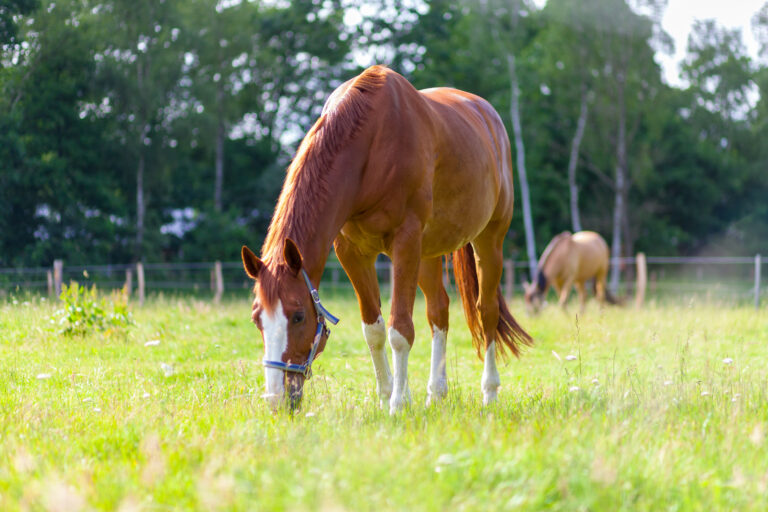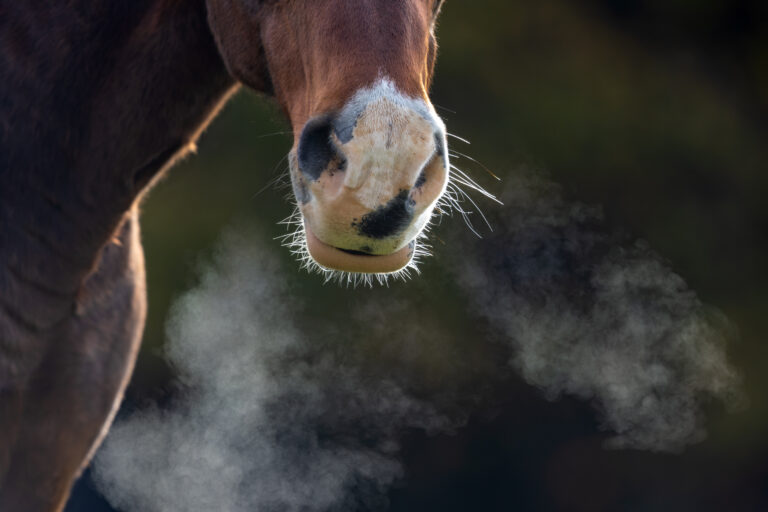
The use of thyrotropin-releasing hormone (TRH) stimulation testing for diagnosis of PPID has been instrumental in effective treatment and management of this disease in aged horses.
A recent study evaluated the effect of age and different diets on ACTH levels measured through TRH stimulation and dexamethasone suppression testing procedures [Jacob, S.I.; Geor, R.J.; Weber, P.S.D.; Harris, P.A.; McCue, M.E. Effect of dietary carbohydrates and time of year on adrenocorticotropic hormone (ACTH) and cortisol concentrations in adult and aged horses, Domestic Animal Endocrinology, (2017), doi: 10.1016/j. domaniend.2017.10.005].
Of 16 Thoroughbred and Standardbred mares and geldings in the study, none displayed typical signs of PPID. All received grass hay and one of four feed supplements twice a day:
- control diet of fortified low-sugar and low-starch pellets
- starch-rich with kibbled corn
- fiber-rich with non-molasses sugar beet pulp/soybean hull pellets
- sugar-rich with dextrose powder
Horses were grouped according to age, with one adult group aged 5-13 years and the other group aged 18-24 years old. Each horse received an allotted amount of isocaloric feed supplement based on body condition and weight tape score. All horses received four seven-week dietary “treatments” with each of the four supplements listed above. Each change in feed supplement followed a two-week washout in which they were fed only the control pellet diet and hay. In the final (seventh) week, each horse was administered an overnight dexamethasone suppression test, then 36 hours later they were given the TRH stimulation test. Endocrine testing was performed in March, May, August and October.
Baseline ACTH concentrations were higher in October than in the other testing months, as expected. ACTH increased following TRH-stimulation testing in both age groups; however, ACTH levels were higher in aged horses than the adults. Post-TRH ACTH concentrations were higher in August and October than in March and May.
Diet could be a confounding variable in evaluating testing results. The study found:
- Baseline (resting endogenous) ACTH concentrations were elevated by the starch-rich diet, and especially so in aged horses compared to adults.
- Results following TRH-stimulation did not show any differences in ACTH concentrations between diets other than aged horses having higher post-TRH ACTH concentrations with the control diet compared to adults on the same control diet.
- Aged horses on the starch-rich diet had higher post-dexamethasone cortisol concentrations compared to aged horses on the sugar-rich diet. Control and fiber-rich diets did not modify post-dexamethasone cortisol concentrations. Based on mouse studies, the authors explain that this could be due to “alterations in the gastrointestinal microbiome affecting regulation of neuroendocrine hormones of the hypothalamic-pituitary- adrenal axis.”
While none of these horses underwent post-mortem or histopathological confirmation (or not) of PPID, the researchers report that the effect of diet, age and time of year should be factored into interpretation of ACTH and cortisol level results with testing.
Starch-rich diets result in significantly higher endogenous ACTH concentrations and decreased cortisol suppression in aged horses. With this in mind, it is possible for horses on a starch-rich diet to be incorrectly diagnosed with PPID due to an elevation of ACTH above expected cutoff levels. They further state that there might be a need for different reference ranges for aged horses, and especially for different times of the year. Adjusted seasonal cutoff values are appropriate from July to November.









